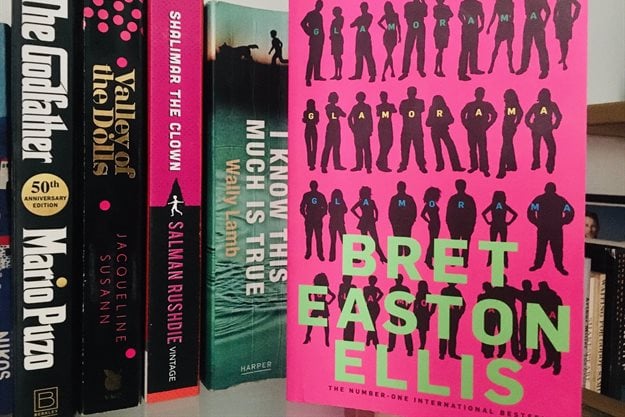#PulpNonFiction: Glamorama and our digital double lives
Like everything he writes, Bret Easton Ellis' Glamorama is a wild ride.
The novel, which is set in the 1990s, is said to have been the (unofficial) inspiration for the (much tamer, by comparison) cult-classic Zoolander movie franchise, due to the obvious plot similarities between the two narratives.
Without giving too much away, the central character in Glamorama is a vacuous model-slash-actor, Victor Ward, who will do pretty much anything (and anyone) to promote his career and raise his public profile. However, he also appears to have a clone - how else can the beautiful, yet hapless Victor appear to be in two very public places at the same time?
Well, if Victor was alive and well in the real world in the year 2021, having a clone of one’s very own would hardly be an impossibility.

Digital twins
Thanks to advances in deep fake artificially intelligent technologies, many of us will soon have our own lifelike “digital twins”.
Take a look at Tom Cruise’s rather convincing artificial twin for example, who recently went viral all by “his” self without the real Tom’s knowledge, let alone permission:
2 years ago on stage I was asked “when will Deepfake video/audio impact trust & be believable in social engineering?” My response then was that we were 2 years away from undetectable Deepfakes. I wish my prediction then was wrong. We need synthetic media detection + labels ASAP. pic.twitter.com/yUUOTDepYY
— Rachel Tobac (@RachelTobac) February 26, 2021
This means, in theory, we would be able to send a (perfectly dressed and flawlessly made-up) lifelike digital avatar of ourselves to sit in on (and act interested in) all those boring Zoom meetings we don’t really want to attend, while our real original bodies are comfortably engaged in a more pleasant activity. We could even attend two, three or more of those same meetings at the same time, without our colleagues and clients being any the wiser…
Of course, though, other people will also be able to create similar digital puppets of us; puppets that look and sound like ourselves but who say and do things - perhaps reputation running things - that we would never do, say or consent to ourselves.
In a world of deep fakes and digital twins, anything is possible.
15 minutes of faux fame
In the book, unsurprisingly, things do not end particularly well for poor Victor. In our real world, will our digital double lives cause us more trouble than they are worth too?
In the future, everyone’s avatars could have the chance to be world famous for 15 minutes.
The question is, will we like the attention?




































